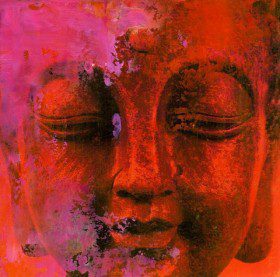Where did Feng Shui come from..?
Feng Shui, quite literally translated as “wind-water,” is a practice that focuses on arranging our surroundings in harmony with the natural world to promote positive energy flow. It’s all about creating a space where good vibes can thrive. Dating back over 5 thousand years, Feng Shui’s origins can be traced to ancient China, where it was believed that our environment directly influences our wellbeing and success. Originally used in agriculture, Feng Shui was then applied to orientating dwellings and places of business. The success of Feng Shui is assured with a potent combination of architecture, interior design, philosophy and common sense. It’s like the OG version of “you are what your room looks like.”
Step back in time to ancient China, a land steeped in tradition and rich cultural practices that have stood the test of time. The ancient Chinese held strong beliefs in the interconnectedness of nature, spirituality, and human life. Their practices often revolved around aligning with the rhythms of the natural world. From the mighty influence of the cosmos to the importance of family and community, Chinese culture was shaped by a myriad of beliefs and philosophies that influenced everything from art to architecture. Discover the foundational principles and practices that laid the groundwork for the art of Feng Shui as we know it today.

Explore how the teachings of Taoism and Confucianism infused Feng Shui with deeper philosophical meanings and perspectives. Taoism’s emphasis on balance, harmony, and the flow of energy found a natural home in the practice of Feng Shui, enriching its principles with spiritual depth. On the flip side, Confucianism brought a more practical approach to Feng Shui, emphasizing social order and ethical values in the design of spaces. Think of it as the yin and yang of ancient Chinese philosophy meeting in your living room.
Feng Shui has evolved over thousands of years from ancient practices associated with understanding the flow of energy or qi. Different schools of Feng Shui, such as Form School and Compass School, have emerged, each emphasizing various aspects of design, layout, and orientation to harmonize with nature and improve life’s quality.
Historical Expansion of Feng Shui Outside China
As Chinese civilization expanded and interacted with neighbouring cultures, Feng Shui principles gradually spread beyond China’s borders. Countries like Korea, Japan, and Vietnam integrated Feng Shui practices into their architectural designs and city planning. Even in the West, Feng Shui has gained popularity as people seek ways to enhance their wellbeing and surroundings.
Cultural Significance & Modern Applications
In modern China, Feng Shui remains deeply rooted in cultural practices and beliefs. From designing homes and offices to city planning and burial grounds, Feng Shui consultants are still sought after for their expertise in creating harmonious environments that promote prosperity and wellbeing.
Beyond China, Feng Shui has been adapted to fit diverse cultural contexts around the world. From interior design principles to business strategies, Feng Shui’s principles are applied in various settings to create balanced and positive spaces. Its popularity in the modern era reflects a universal desire for harmony and balance in all aspects of life.
Criticisms & Debates Surrounding Feng Shui
– Scepticism and Scientific Perspectives
Despite its widespread appeal, Feng Shui faces criticisms from sceptics who question its scientific basis and empirical evidence. While some studies have shown correlations between Feng Shui principles and psychological wellbeing, the field continues to be debated in scientific circles regarding its efficacy and measurable impact.
– Ethical Considerations in Feng Shui Practice
As Feng Shui gains global popularity, ethical considerations surrounding cultural appropriation and misinterpretation have come to the forefront. Practitioners are urged to respect the cultural origins of Feng Shui and engage in its practice with sensitivity and understanding, avoiding superficial approaches that disregard its profound historical and spiritual significance. In conclusion, the origins of Feng Shui in ancient China reveal a profound connection between the natural world and human existence, reflecting the enduring wisdom of Chinese traditions. From its humble beginnings to its global reach today, Feng Shui continues to captivate individuals seeking harmony and balance in their lives. By understanding its historical roots and cultural significance, we can appreciate the enduring legacy of Feng Shui and its ongoing relevance in a rapidly changing world.
Frequently Asked Questions
1. Is Feng Shui a religious practice?
Feng Shui isn’t inherently religious but blends Taoist, Buddhist, and Confucian principles.
2. How has Feng Shui evolved over time?
Feng Shui evolved from early geomancy to integrate architectural design, interior decoration, and personal wellbeing.
3. Can anyone practice Feng Shui, or is it reserved for experts?
Anyone can learn and practice Feng Shui, though expertise deepens with study and experience.
4. What are some common misconceptions about Feng Shui?
Misconceptions include seeing it solely as superstition or solely about arranging objects, rather than understanding its holistic approach to harmonizing environments.
UPDATED: May 2nd, 2024.
